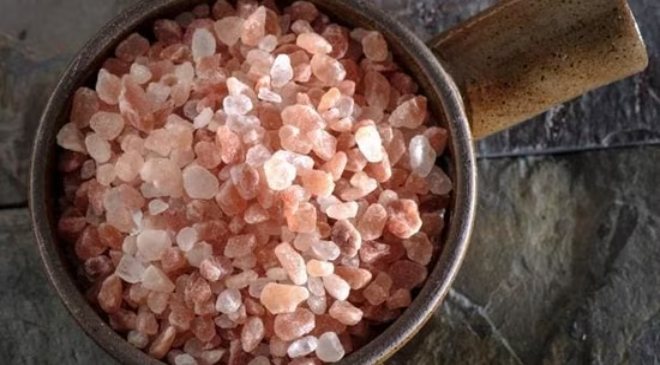Talking about the dangers of excessive salt intake, ICMR says all types of salt should be consumed in limited amounts as the sodium content in them is similar.
Elaborating on the perils of excessive salt intake, ICMR (Indian Council of Medical Research) in its recent guidelines has highlighted that consumption of all the varieties of salt should be controlled as the sodium content in them is more or less the same.
The two types of rock salt – pink salt (sendha namak) and black salt (kala namak) are considered healthier than table salt due to presence of more minerals like potassium, calcium, magnesium, iron, and manganese. Unlike white salt, rock salt isn’t refined and is present in its pure crystalline form.
“Pink and black salts can be easily distinguished by their colour, texture and smell. Pink salt is one of the purest forms of salts. Black salt upon storage grows darker. Assorted spices, charcoal, seeds and tree bark are used in the preservation of this salt. Therefore, irrespective of the variety of salt, their consumption should be limited as the sodium content in them is almost similar,” read ICMR guidelines.
Read More: Kidney Stones: These 5 Habits Can Lower Risk Of Renal Damage In Summer Season
Side effects of eating excess salt
High salt intake is associated with increase in blood pressure and high risk of heart diseases. Consuming excessive salt can also affect gut health and lead to gastric cancer.
“Existing evidence reveals a deleterious impact of high salt intake on blood vessels, blood pressure, bones and gastrointestinal tract. There is a strong association between salt intake and blood pressure,” says ICMR.
Besides increasing blood pressure, excessive salt intake may also affect stomach mucosa and increase the risk of gastritis, atrophy and gastric cancer.
Higher sodium intake can affect our bone health by reducing its density as higher levels of this compound can lead to greater calcium excretion as per ICMR.
Read More: Mango seeds: 12 surprising benefits of ‘aam ki guthli’ and ways to add it to your diet
How a low-salt diet can help
The apex medical research body says prevalence of hypertension could be low in people who consume less than 3 gm salt per day and the age-related increase in blood pressure can also be controlled if low salt diets are followed early on.
“Restriction of dietary salt decreases the risk of hypertension,” as per ICMR, advising that processed and preserved foods such as snack foods, sauces, ketchups, biscuits, chips, cheese and salt fish should consumed less.
ICMR also says that potassium-rich foods such as fresh vegetables and fruits can help control blood pressure as they help in excretion of sodium.
Read More: Broccoli Benefits: Healthy Digestion To Immunity, 7 Reasons To Add In Your Summer Diet
How much added salt should we eat per day?
Salt intake as per ICMR should not exceed more than 5 gram per day.





































